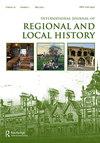The Impact of Colonization and Western Assimilation on Health and Wellbeing of Canadian Aboriginal People
Q2 Arts and Humanities
International Journal of Regional and Local History
Pub Date : 2015-05-01
DOI:10.1179/2051453015Z.00000000023
引用次数: 68
Abstract
Abstract Colonization and government assimilation (i.e., into mainstream Western society) impacted all aspects of Aboriginal life, including: health, traditional roles, culture, socio-economic conditions, access to services, and equity among others. Consequently, many Canadian Aboriginal people today experience health inequities, loss of tradition and traditional practices, and breakdown of the family unit. To gain an understanding of how to promote equity in health care for Aboriginal people, a critical examination of the root causes of health and healthcare inequities must be considered within historical, economic, and socio-political contexts. The following paper uses a post-colonial feminist theoretical perspective to situate inequities in Aboriginal people's lives and health by focusing on the impact of colonization and assimilation on Aboriginal people.殖民和西方同化对加拿大原住民健康和福祉的影响
殖民和政府同化(即进入主流西方社会)影响了土著生活的各个方面,包括:健康、传统角色、文化、社会经济条件、获得服务的机会和公平等。因此,今天许多加拿大土著人民经历着保健不平等、传统和传统习俗的丧失以及家庭单位的破裂。为了了解如何促进土著人民的卫生保健公平,必须在历史、经济和社会政治背景下对卫生和卫生保健不平等的根本原因进行批判性审查。下面的论文使用后殖民女性主义的理论视角,定位土著人的生活和健康的不平等,重点是殖民化和同化对土著人的影响。
本文章由计算机程序翻译,如有差异,请以英文原文为准。
求助全文
约1分钟内获得全文
求助全文
来源期刊

International Journal of Regional and Local History
Arts and Humanities-History
CiteScore
0.30
自引率
0.00%
发文量
10
期刊介绍:
The International Journal of Regional and Local History aims to publish high-quality academic articles which address the history of regions and localities in the medieval, early-modern and modern eras. Regional and local are defined in broad terms, encouraging their examination in both urban and rural contexts, and as administrative, cultural and geographical entities. Regional histories may transcend both local and national boundaries, and offer a means of interrogating the temporality of such structures. Such histories might broaden understandings arrived at through a national focus or help develop agendas for future exploration. The subject matter of regional and local histories invites a number of methodological approaches including oral history, comparative history, cultural history and history from below. We welcome contributions situated in these methodological frameworks but are also keen to elicit inter-disciplinary work which seeks to understand the history of regions or localities through the methodologies of geography, sociology or cultural studies. The journal also publishes book reviews and review articles on themes relating to regional or local history.
 求助内容:
求助内容: 应助结果提醒方式:
应助结果提醒方式:


